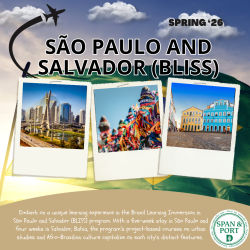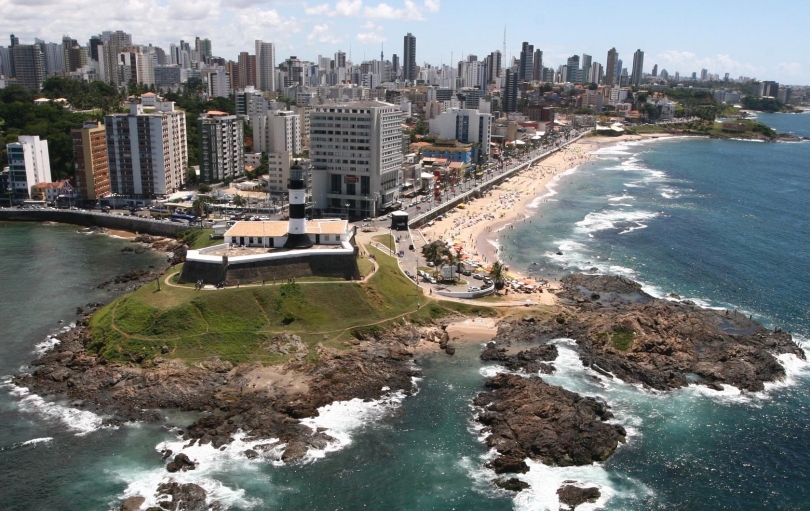ABOUT THE PROGRAMS
BLISS 2026

NEW STUDY ABROAD PROGRAM IN BRAZIL
Students with and without knowledge of Portuguese can join the program, and native speakers are also welcome.
Applications are open and are due on Feb. 1st.Access the application here.
For more information, contact professor Carlos Minchillo: carlos.cortez.minchillo@dartmouth.edu.
For more information on the Portuguese course sequence, visit our course sequence document.
The Brazil Learning Immersion in São Paulo and Salvador (BLISS) program is run jointly by the Department of Spanish and Portuguese and the Department of Latin American, Latino & Caribbean Studies. BLISS is an innovative model of study abroad that combines advanced topic courses in English with Portuguese-language course options for all levels, from beginner to native speaker. Therefore, students do not need to have previous knowledge of Portuguese to join the program. Drawing from the social sciences and the humanities, BLISS provides a cross-disciplinary opportunity to study Brazil from multiple angles.
The academic training and experiential components expand and deepen students' knowledge about Latin America and the Lusophone world. Coupled with first-hand experience of living in Brazil, the two-topic courses develop a well-informed and rich understanding of the country's main features, problems, assets, and prospects. Curricular and co-curricular components are designed to complement each other and create a dialogue between classroom work and the surrounding natural, social, and cultural landscapes.
To promote a broader understanding of Brazil's historical, economic, ethnic, and cultural diversity, the program is held in two Brazilian cities. Students spend the first 5 weeks in São Paulo and the last 4 weeks in Salvador, Bahia. The program's project-based courses on urban studies and Afro-Brazilian culture capitalize on the environmental and social richness of each of those cities. This full immersion experience in an authentic cultural context will provide a unique opportunity for students to develop language skills and intercultural competencies.
